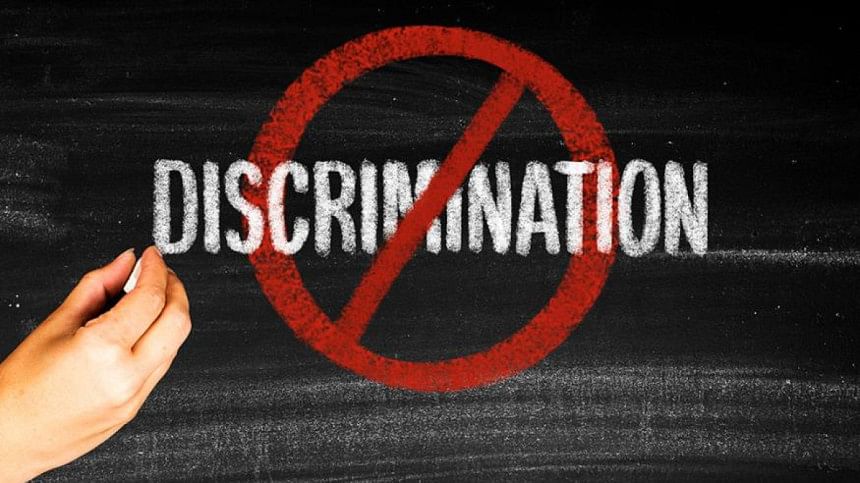‘Significant changes necessary in Anti-Discrimination Bill before proposed as law’

Eminent citizens today said they want to be hopeful about the long-waited Anti-Discrimination Bill but significant changes have to be made before the passage of the proposed law in parliament.
Law Minister Anisul Huq placed the "Anti-Discrimination Bill 2022" in parliament on April 5, 2022, which aims to ensure dignity and equal rights for every citizen of the country.
Later, the bill was sent to the parliamentary committee on the law ministry for scrutiny. The committee has been asked to submit its report before the House within 30 days.
Although the proposed law will recognise different forms of discrimination that people face in their daily life, it largely ignores the remedial aspect, the eminent citizens said at a media brief organised by Citizen's Platform for SDGs, Bangladesh at the capital's Brac Centre Inn today (April 10, 2022).
They said the draft law does not keep any provision for punishment against discrimination, stressing the necessity for the proper functioning of the monitoring committee mentioned in the draft law.
Dr Debapriya Bhattacharya, convenor of the platform and eminent economist, said the platform has long been demanding the law. Its associate bodies staged demonstrations to achieve the goal and also helped the government in preparing the draft.
Stressing the importance of the law, Debapriya said almost all the goals and targets of Sustainable Development Goals (SDGs) especially Goal-10 and Goal-16 stress ending discrimination.
"Many would say law takes its own course. However, the law takes its own course only if there is visible political will, skilled administration and judicial system, and proactive citizen's monitoring," he added.
Eminent jurist Shahdeen Malik said as there is a "political vacuum" in the country, police and bureaucracy have become more powerful and its reflection could be seen in different laws.
"Now, laws are being formulated to increase the power of bureaucracy," he said.
A national committee of 29 members will be formed under the law. However, in addition to a minister, 15 of those members will be either secretaries or joint secretaries whereas only three to four members will be from civil society, he said.
Transparency International Bangladesh Executive Director Dr Iftekharuzzaman said to be hopeful about the law's proper implementation is difficult since accountability of power misuse is absent at present.
He mentioned that misuse of power is largely responsible for creating discrimination in the society and said in Bangladesh, institutional capacity to prevent such misuse of power is largely absent.
The institutions which are supposed to take action against power misuse and ensure accountability have largely been made dysfunctional, he added.
He suggested increasing different definitions in the proposed law, saying it consists of only a handful of definitions at present.
Chairing the event, Manusher Jonno Foundation Executive Director Shaheen Anam said they want to take progress made regarding the law's formulation "positively".
The objective is to see how far the law will be effective to empower people and how easily they will get remedy against the discrimination they face in everyday life, she said.
Shaheen Anam said they have found several differences between the bill placed in parliament and the one they submitted, adding they are expecting to discuss the differences with the parliamentary committee soon.
She also stressed the importance of education, social harmony, respect for each other, and tolerance to accept different opinions to eliminate discrimination.
"Only law cannot be enough to change the mindset," she added.
Supreme Court lawyer Barrister Sara Hossain, Zakir Hossain, chief executive of Nagorik Uddyog, and Faustina Pereira, senior fellow of Centre for Peace and Justice, also spoke at the event.

 For all latest news, follow The Daily Star's Google News channel.
For all latest news, follow The Daily Star's Google News channel. 




Comments